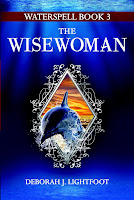“The adventures first,” said the Gryphon in an impatient tone: “explanations take such a dreadful time.” —Alice’s Adventures in Wonderland
Though I didn’t remember the Gryphon’s plea in time to enter it into the conversation, this was what I was getting at during a recent critique session involving a writer whose work I’d not read before. The writer began her story with a page and a half of exposition, conveying all the background information that she considered essential to a reader’s understanding of what came next.
“No, no,” I said. “Start with action and dialogue. First hook your readers; draw us in with happenings. Then give us the backstory—a bit at a time so as not to slow the pace.”
“But [unnamed editor] told me to set the scene up front,” the writer countered. “The editor wanted all this information at the beginning.”
“Maybe that’s a particular editor’s viewpoint,” I rejoined. “But I’m telling you as a reader: I’m only interested in learning the backstory after I’ve been given a reason to care about it. Put your characters in a situation that stirs my concern for their well-being, whether physical or emotional, or both. When I’ve connected with the characters, then I’ll want to hear how they came to be caught in that situation.”
The writer then confessed that she had originally begun her story with action, but upon the advice of the unnamed editor she had rewritten it to put the explanations first. Too bad she hadn’t gotten a critique from the Gryphon: he would have set her straight.
ALL PUBLISHING PROFESSIONALS ARE NOT CREATED EQUAL
Nearly every writer I know has bought at least one critique from a publishing professional: generally the younger editors and agents who populate the conference circuit. I, too, have purchased critiques, with mixed results. Some have been astute and helpful and worth the money. But others have been worse than useless. They’ve offered bad advice, which I might have felt obliged to follow if I’d been less experienced at this game. Fortunately, though, I know better.
Here’s one example:
“It’s unclear to me whether Carin is meant to be a mortal living in our reality who inadvertently enters a fantasy realm or if they both [protagonist Carin and deuteragonist swordsman] inhabit the same world. Is she trespassing on someone’s property or on another world entirely? There’s no sense in keeping it a secret, so this should be made absolutely clear in the first chapter.” —Young Nameless Agent 1
Actually, YNA1, there is every reason to build this question in the reader’s mind. It is a fundamental aspect of the mystery.
And again:
“Start your manuscript earlier so that we can better get to know Carin … I don’t yet know her enough to be as invested in her welfare as I’d like. Can you let us get to know her more first?” —Young Nameless Agent 2
As the story opens, YNA2, Carin herself does not know who she is. She’s a teenager groping for identity and purpose. She is searching for the place where she belongs.
All told, it takes three 400-page books to finally answer the questions: “Who is Carin? Where does she come from? Where does she belong?” Carving a place for yourself in a world where you don’t really fit: that’s a major theme running through the WATERSPELL trilogy.
FANTASY IS MYSTERIOUS
My encounters with these Young Nameless Agents made me believe they require, in their reading, the same kind of instant gratification they’re accustomed to in every aspect of their lives. Want to connect with a friend? Do it by instant message. Need a fact? Find it immediately online. Have a stray thought? Tweet it at once.
But fantasy, by its nature and at its heart, is filled with mystery. The answers don’t present themselves at the outset. They are buried, oftentimes under layers, deep in the subtexts.
Getting the whole story from an intricate, multilayered fantasy requires a reader’s patience and attention to detail. It took me years to weave together the threads of my tale. Readers need not expect to get the whole story in the first 10 pages.
I’m not into instant gratification—either my own or other people’s. I much prefer the feeling of satisfaction that comes with delayed gratification. Wait for it, work for it, invest yourself in achieving it … then enjoy the fruits of success. There’s nothing better.
Now I’ve committed to memory the Gryphon’s excellent advice: “Adventures first, please! Explanations take such a dreadful time.” I’ll be better prepared to argue for the Gryphon, if ever again I hear of an inexperienced member of the publishing profession contradicting that advice.



No comments:
Post a Comment